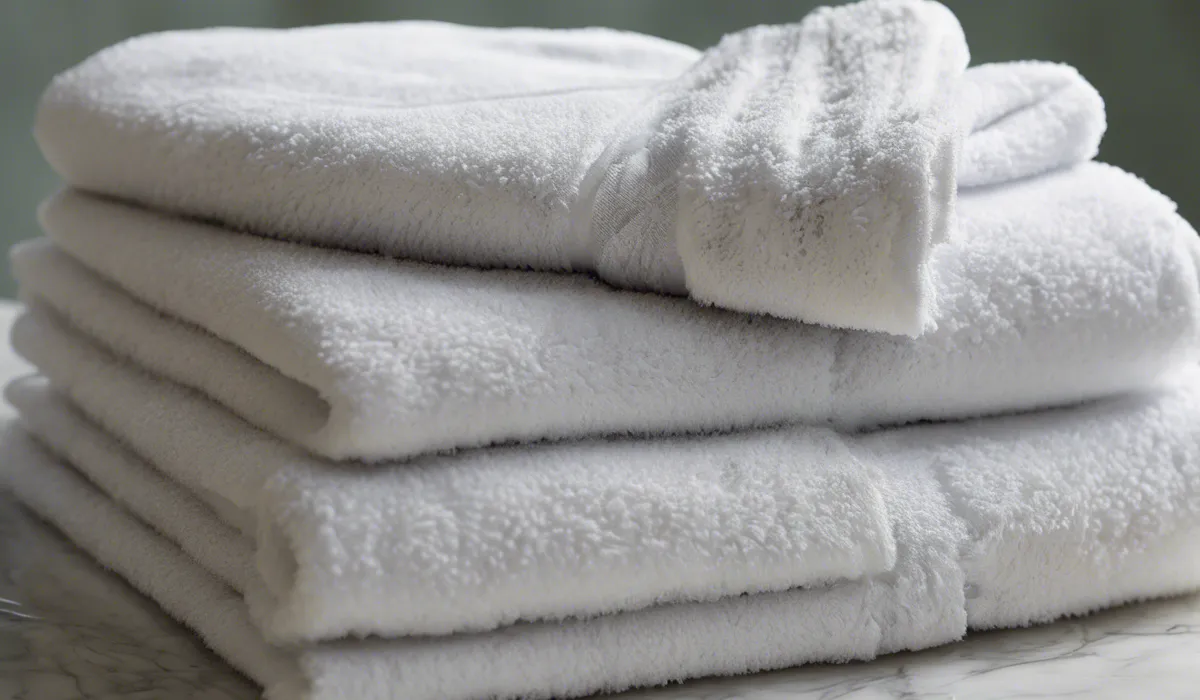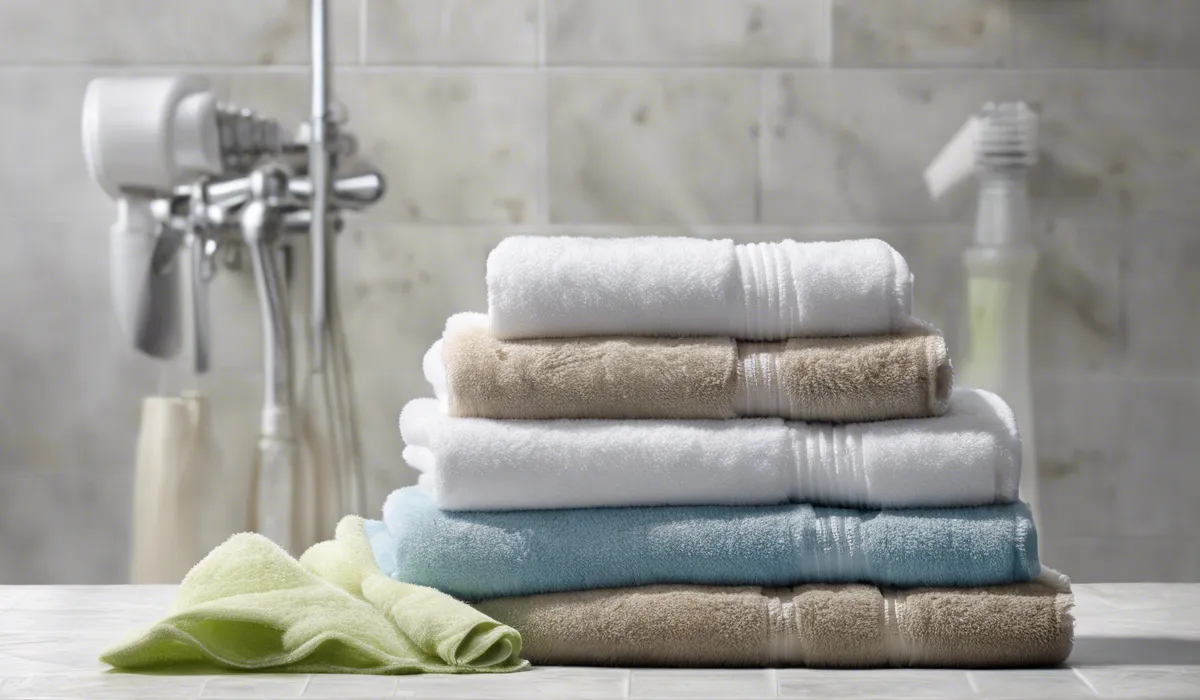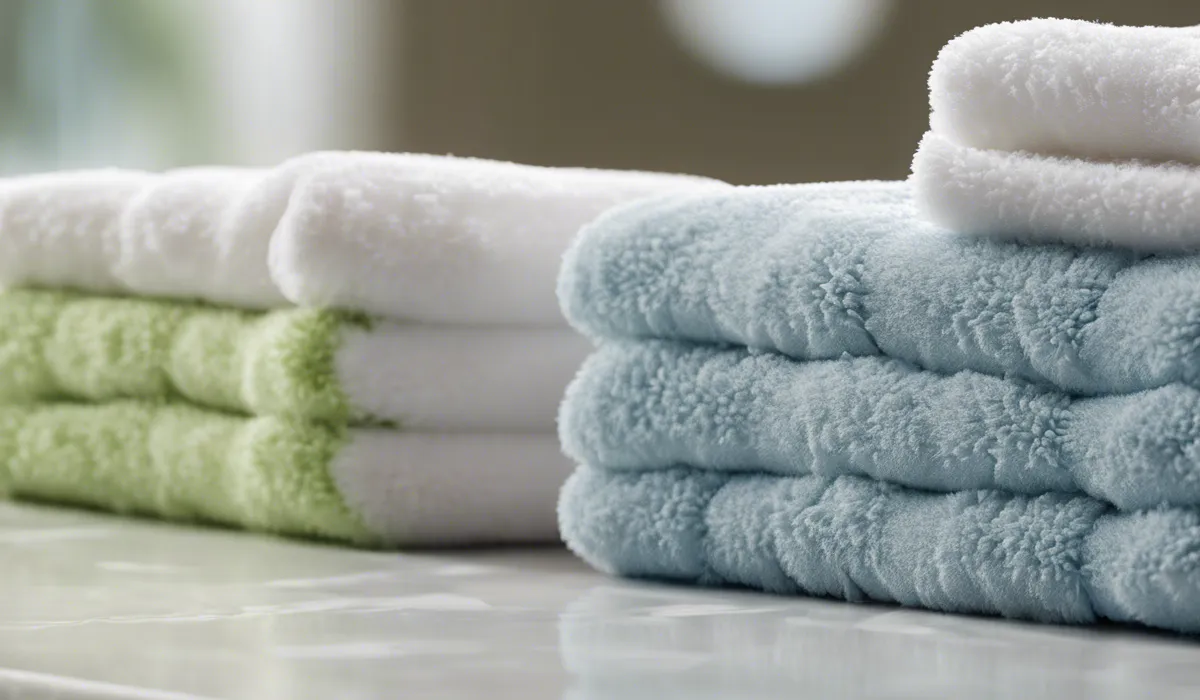Mildew on towels isn’t immediately dangerous, but it can lead to skin irritation or respiratory issues if not addressed. Regular washing and drying prevent mildew growth, ensuring towels remain safe to use.
What Is Mildew and How It Forms on Towels

Defining Mildew
Mildew is a type of fungus that thrives in warm, damp environments. It appears as a thin, superficial coating of white or gray patches.
Unlike its deeper, more invasive cousin mold, mildew remains on the surface of materials, where it can be removed with relative ease.
Mildew vs. Mold
While both are fungi, mold and mildew have distinct differences. Mold is often green or black and penetrates the surface of what it grows on, causing structural damage. Mildew, however, tends to stay on the surface and is less destructive than mold.
Conditions Favoring Mildew Growth
Mildew loves moisture, warmth, and poor air circulation. Towels, especially when left damp in a heap, provide an ideal breeding ground for these fungi.
Bathrooms with low ventilation amplify these conditions, making it easier for mildew to establish itself on textiles.
Where Towels Meet Mildew?
Bathrooms and laundry bins are common places for towels to become mildewed. When towels are not dried thoroughly after use or washing, mildew can set in, leaving a musty smell and unsightly stains.
Health Risks Associated with Mildew on Towels

Health Issues from Mildew Exposure
Exposure to mildew can lead to skin irritations and respiratory issues. Prolonged contact with mildew-infested towels can exacerbate these problems, making it crucial to address mildew growth promptly.
Impact on Vulnerable Populations
Individuals with weakened immune systems, allergies, or respiratory conditions are particularly vulnerable to the effects of mildew. For them, the presence of mildew can trigger severe health responses.
Allergies and Respiratory Concerns
Mildew can cause allergic reactions, such as sneezing, itching, and watery eyes. It can also aggravate asthma and other respiratory conditions, making it harmful to breathe in spores from mildewed towels.
Long-Term Effects of Mildew
Continuous exposure to mildew can have long-term health effects, including chronic respiratory conditions. It’s essential to keep living environments free from mildew to avoid these risks.
Prevention and Remediation

Maintenance Tips for Towels
Regular washing and fully drying towels are key to preventing mildew. Use warm water and dry towels immediately after washing to keep them fresh and mildew-free.
Washing and Drying Techniques
Wash towels in warm water with a robust detergent and dry them on high heat. If possible, expose towels to sunlight, which helps eliminate mildew spores.
Natural and Chemical Mildew Solutions
Vinegar and baking soda are effective natural remedies for removing mildew. For more persistent cases, bleach or commercial fungicides can be used as directed.
When to Replace Your Towels
If mildew has deeply penetrated a towel or the towel is starting to fray, it might be time to replace it. Consider the towel’s age and condition when deciding to throw it out.
FAQs About Mildew on Towels
Is mildew on towels immediately harmful to health?
Mildew on towels is not immediately harmful, but it should be cleaned promptly to avoid health issues.
Can mildew on towels cause skin problems?
Yes, mildew on towels can lead to skin irritation if the towels are used without being properly cleaned.
Is it safe to breathe around mildew-infested towels?
Inhaling spores from mildew can cause respiratory issues, especially for people with allergies or asthma.
What is the best way to prevent mildew on towels?
Regular washing and thorough drying of towels are effective ways to prevent mildew growth.
How often should towels be washed to prevent mildew?
Towels should be washed after a few uses, or when they become damp, to prevent mildew growth.
Final Thoughts
While mildew on towels is not immediately hazardous, it poses a risk of skin irritation and respiratory problems if left untreated.
To maintain towels safe for use, it is essential to wash and dry them regularly, which effectively curtails the growth of mildew.
